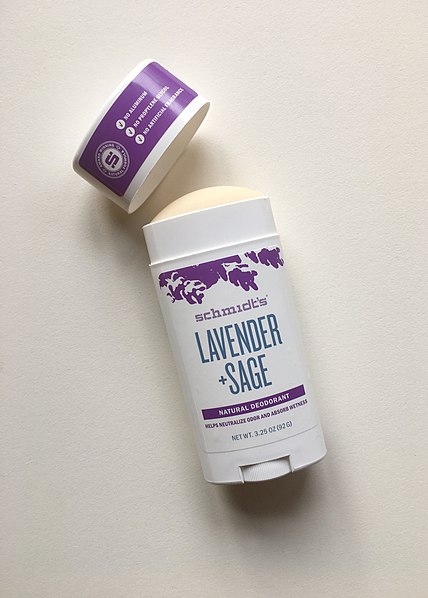A deodorant is a substance applied to the body to prevent or mask body odor caused by bacterial breakdown of perspiration, for example in the armpits, groin, or feet. A subclass of deodorants, called antiperspirants, prevents sweating itself, typically by blocking sweat glands. Antiperspirants are used on a wider range of body parts, at any place where sweat would be inconvenient or unsafe, since unwanted sweating can interfere with comfort, vision, and grip. Other types of deodorant allow sweating but prevent bacterial action on sweat, since human sweat only has a noticeable smell when it is decomposed by bacteria.
Methenamine-based antiperspirant for treatment of excessive sweating
An aluminum-free deodorant, labeled "no aluminum"
Natural deodorant - aluminium free
Potassium alum, potash alum, or potassium aluminium sulfate is a chemical compound first found mentioned under various Sanskrit names in Ayurvedic medicinal texts such as Charak Samhita, Sushrut Samhita, and Ashtang Hridaya; is chemically defined as the double sulfate of potassium and aluminium, with chemical formula KAl(SO4)2. It is commonly encountered as the dodecahydrate, KAl(SO4)2·12H2O. It crystallizes in an octahedral structure in neutral solution and cubic structure in an alkali solution with space group P a −3 and lattice parameter of 12.18 Å. The compound is the most important member of the generic class of compounds called alums, and is often called simply alum.
Potassium alum
Octahedral potassium alum crystal with unequal distribution of the face area
An ammonium alum block sold as an astringent in pharmacies in India (where it is widely known as Fitkiri (Bengali), Fitkari (Hindi)”






